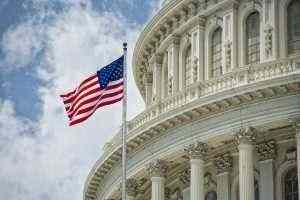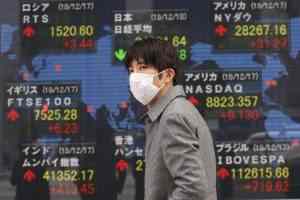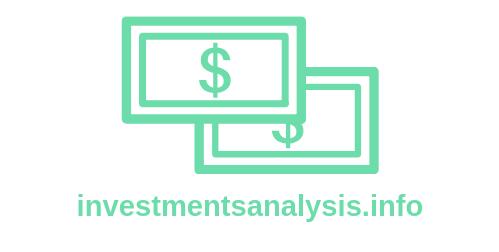Market makers forex: Make profits based on market makers strategies


Because of their investment charters and obligations towards their investors, the bottom line of the most aggressive hedge funds is to achieve absolute returns besides of managing the total risk of the pooled capital. Foreign exchange advantage factors like liquidity, leverage and relatively low cost create a unique investment environment for these participants. With Forex trading surging in recent decades, and as more individuals earn their living trading, the popularity of riskier investment vehicles like hedge funds has increased. These participants are basically international and domestic money managers. They can deal hundreds of millions, as their pools of investment funds tend to be very large.
It can further include that the rate would be supplied in a reasonable amount of time. The term “bid and ask” refers to a two-way price quotation that indicates the best price at which a security can be sold and bought at a given point in time. The trading platform usually comes with free charting software and news feeds. Though this is only a $0.02 difference, in high-volume trading, the profits will soon add up. They are most common in stock trading but can also act in other markets. Determine significant support and resistance levels with the help of pivot points.
Their sheer financial power to borrow or print money gives them a huge say in the value of a currency. The opinions and comments of a central bank should never be ignored and it is always good practice to follow their comments, whether in the media or on their website. A market maker is a trader or trading firm that quotes their own bid and ask prices on one or more assets. They’ll own a set amount of the assets that they buy and sell, so they can quickly facilitate deals and ensure liquidity remains high. Every trade that is completed in the forex markets need to have a buyer and seller and when this takes place then we have a trade.
For example, a market maker may offer to purchase 100 equities from you at $10 each , and then offer to sell them to a buyer at $10.02 . The system allows you to trade by yourself or copy successful traders from all across the globe. And to offload his inventory he will move the price to attract buyers and sellers. You can follow all central bank related topics and news, through our RSS. Besides of the available technology, the competition between banks also contributes to the tight spreads and fair pricing. Direct dealing agreements can include that a certain maximum spread will be upheld, except under extreme conditions, for example.

This happens by purchasing into selling pressure or selling into buying pressure. In other words, what a market maker will do is do the opposite of what they wanted to do initially in order to push the price to a particular level. Does this mean that in the above scenario one party has to win, and one must lose? Not at all, in fact both traders can win or lose; perhaps one has entered a short-term trade and the other has entered a long-term trade. Perhaps the first trader will take a profit quickly, but there is no rule that states the second trader must close his trade at the same time. Later in the day, the price reverses, and the second trader takes his profit as well.
EUR/USD quotes leaving trading ranges:
A trader first consciously faces a market maker in a rather banal situation. After having had several losing trades for the first time and dived into the Internet in search of a reason, they find an explanation for all their failures. It turns out that in the market there is a great and dreadful monster which pulls up the price to its stop-loss that the trader has calculated so correctly and set with such a margin of safety. The majority of developed market economies have a central bank as their main monetary authority. Market markers capitalize on the difference between their buying price and their selling price, which is called the “spread”. They are also compensated by their ability to manage their global FX risk using not only the mentioned spread revenues but also netting revenues and revenues on swaps and conversions of residual profits or losses.
In addition, you came to the market for its money, and it’s hardly a pleasant thing for it. But unlike a market maker, a trader can always exit both from a profitable and from a loss-making position, which MM cannot do. For success as a trader, it’s not determining whether you trade through a market maker, non-dealing-desk or ECN broker. However, retail brokerage demands a due diligence, particularly in terms of regulation, execution speed, tools, costs and services.

If there has been a long consolidation amid low trading volumes, market makers won’t be happy. On the contrary, when quotes update latest extremums, where stop orders or pending orders have been certainly placed, liquidity providers rub their hands. During the whole American and Asian session GBP/USD traded inactively. Pushing the market towards selling, the liquidity provider made traders want to conduct trades. Knowing where the quotes would move to, we could sell the pound during the growth. In this strategy a protective stop order should be placed a bit above the lower limit of the previous consolidation range.
The two-currency-pair transaction is the reason why the spread for currency crosses, such as the EUR/CAD, tends to be wider than the spread for the EUR/USD. Cross currency pairs are generally not quoted on either platform, but are calculated based on the rates of the major currency pairs and then offset through the legs. Some exceptions are EUR/JPY and EUR/CHF which are traded through EBS and EUR/GBP which is traded through Reuters. Central Bank interventions are one of the most interesting and puzzling features of the global foreign exchange markets. More often than usually believed, domestic monetary authorities engage in individual or coordinated efforts to influence exchange rate dynamics. The intervention can take the form of direct buying to push prices higher or selling to push prices down.
GBP/USD quotes leaving the trading range:
A market maker is an individual or institution that buys and sells large amounts of a particular asset in order to facilitate liquidity. As you see, either trading with a market maker or with a NDD broker, your order always ends up in a dealing desk. The broker may also assume the risk, taking the other side of this imbalance, but it’s less probable that he assumes the entire risk. On one hand, the statistics showing the majority of retail Forex traders loosing their accounts, may contribute to the appeal of such a business practice. But on the other hand, the spread is where the real secure and low risk business lies. In the early 90s, when these interbank platforms were introduced, it is also when the FX market opened for the private trader, breaking down the high minimum amount required for an interbank transaction.
While in the past reserves were mostly held in gold, today they are mainly held in Dollars. It is common for central banks nowadays to possess many currencies at once. No matter what currencies the banks own, the Dollar is still the most significant reserve currency. The different reserve currencies that central banks hold as assets can be the US Dollar, Euro, Japanese Yen, Swiss Franc, etc. They can use these reserves as means to stabilize their own currency. In a practical sense this means monitoring and checking the integrity of the quoted prices dealt in the market and eventually use these reserves to test market prices by actually dealing in the interbank market.
Forex market maker manipulation
Since any resources have a limit, and financial ones are not an exception, market makers apply sophisticated hedging systems to their transactions through various option strategies. All work must be paid for, and all market participants pay a market maker for each trade. This fee is a spread, not your stop-loss, and the difference between Sell and Buy always goes in favor of the market maker. Market makers “make” or set both the bid and the ask prices on their systems and display them publicly on their quote screens. They stand prepared to make transactions at these prices with their customers, who range from banks to retail forex traders. As counterparties to each forex transaction in terms of pricing, market makers must take the opposite side of your trade.
Position trading: definitions, pros and cons. Examples of position trading strategies
It may be more difficult to calculate stop-loss and breakeven points in pips in advance, because of variable spreads between the bid and the ask prices. Genuine ECN brokers will not trade against you, as they will pass on your orders to a bank or another customer on the opposite side of the transaction. It is possible to trade on prices that have very little or no spread at certain times. Market makers’ quote display and order placing systems may also “freeze” during times of high market volatility.
ECN volume is only a reflection of what is available on any one ECN, not in the overall market. The market maker’s responsibility is to provide liquidity under all conditions to its customers. The market maker interacts with other market maker banks to manage their position exposure and risk.
It is interested in the area in which the traders’ money is concentrated. And naturally, to get it, it is ready to make effort and push the quotation in the zone where the largest volume of trade operations is concentrated. The only alternative is to buy or sell in a secluded way without alerting all the other traders as to what is really happening.
It includes large institutional investors, hedge funds and other entities that are trading in the financial markets for capital gains. The exchange rates that market makers set are based on their own best interests. On paper, the way they generate profits for the company through their market-making activities is with the spread that is charged to their customers.
This destroys the oft-repeated fallacy that every Forex trade is a zero-sum game. But this is a fast, over-the-counter market; buyers and sellers don’t come in regular, offsetting waves, and when they do come, they all have to deal through the market maker. He needs to clear his books as quickly as possible; to reduce his risk he will lay off trades within five seconds, 10 seconds, or 10 minutes. You know from chapter A01 that the Forex spot market works over-the-counter, which means there are no guarantors or exchanges involved. Banks wanting to participate as primary market makers require credit relationships with other banks, based on their capitalization and creditworthiness.
This medium contributed to form a diverse global market where prices and information are freely exchanged. Generally speaking, fund managers invest on behalf of a range of clients including pension funds, individual investors, governments and even central banks. Also government-run investment pools known as sovereign wealth funds have grown rapidly in recent years. This is not something which happens often but can be seen specially at times when exchange rates get a bit out of hand, either falling or rising too rapidly. Central banks hold foreign currency deposits called “reserves” also known as “official reserves” or “international reserves”. This form of assets held by central banks is used in foreign-relation policies and indicates a whole lot about a countries’ ability to repair foreign debts and also indicates a nation’s credit rating.
So, market makers play a vital role in providing liquidity and maintain competitive bid-ask rates in the Forex market. Ultimately, their objective is to provide liquidity and earn a profit through spread or commission. In comparison with the mentioned brokerage models, the ECN brokers provide collected exchange rates from several interbank and non-interbank participants buying and selling through the platform. This is the case of companies and businesses of any size from a small importer/exporter to a multi-billion Dollar cash flow enterprise. These so called “comercial traders” use financial markets to offset risk and hedge their operations. Non-commercial traders, instead, are the ones considered speculators.
Whether big or small scale, banks participate in the currency markets not only to offset their own foreign exchange risks and that of their clients, but also to increase wealth of their stock holders. Each bank, although differently organized, has a dealing desk responsible for order execution, market making and risk management. The role of the foreign exchange dealing desk can also be to make profits trading currency directly through hedging, arbitrage or a different array of strategies. Brokers are typically very large companies with huge trading turn over, which provide the infrastructure to individual investors to trade in the interbank market.
